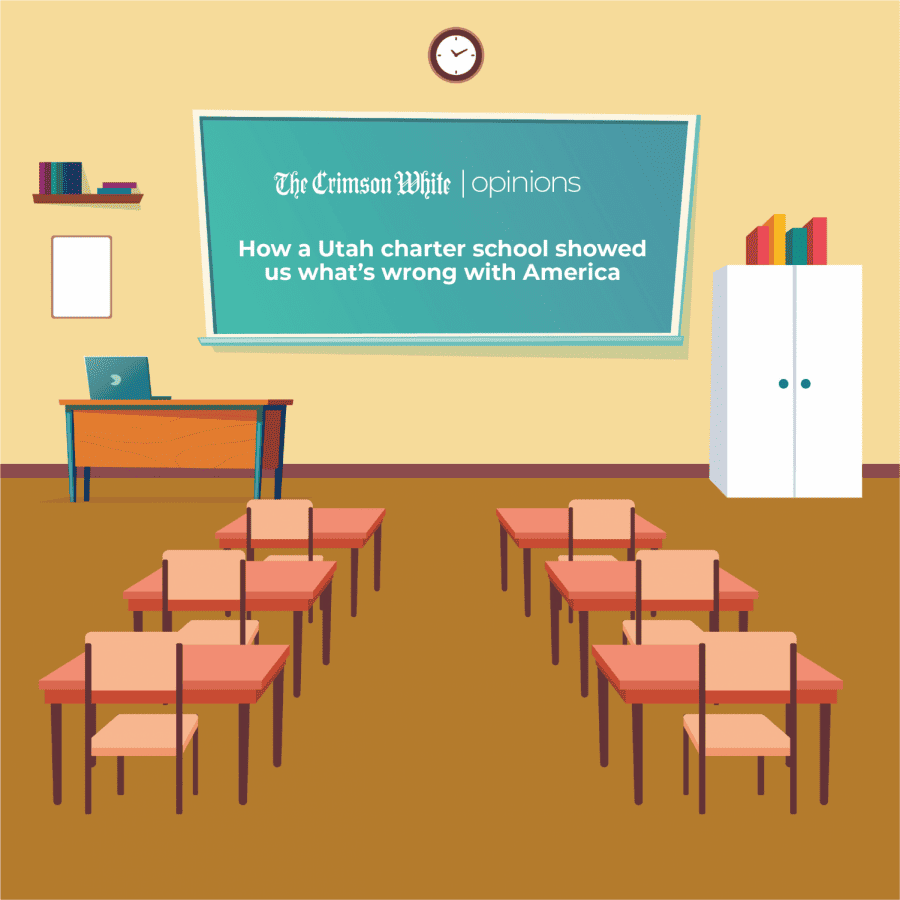Opinion | How a Utah charter school showed us what’s wrong with America
Civil rights are supposed to protect us from prejudice. They’re not an excuse to be racist.
More stories from Britney Bailey
In today’s climate, there are a lot of topics that might make some of us uncomfortable. From the ever-growing political debates, to cops gunning down civilians who “fit a description,” to movements popping up left and right or that coup thing that happened at the Capitol, you’d think trying to pull your kid from a Black history curriculum would be the last thing on anyone’s mind.
But here we are.
After receiving requests from parents at Maria Montessori Academy, a charter school in North Ogden, Utah, decided to make its Black History Month curriculum optional for students.
A statement from Academy Director Micah Hirokawa and the school’s board of directors explained the decision by stating, “We regret that after receiving requests, an opt-out form was sent out concerning activities planned during this month of celebration.”
There’s your ultimate sign that something isn’t right: The director was already filled with guilt, and he regretted sending out the option.
School officials declined to release the actual number of families that requested the option or give reasoning as to why they had concerns over the lessons. Hirokawa issued a statement on the school’s Facebook page, explaining that he “reluctantly” issued a letter stating that families are allowed “to exercise their civil rights to not participate in Black History Month at the school.” The post was removed after it got public backlash.
But the real kicker here is that according to data from the Utah State Board of Education, only five of the 322 students at the academy are in fact, Black, and 70% are white. In a nation where schools are still deeply segregated, this entire situation raises the question of whether people actually understand what civil rights really are.
If we’ve learned anything from the past couple of years, it’s that using the “exercising civil rights” argument is often just a way to justify ignorance, and sometimes outright racism. It’s what state leaders and pundits said when COVID-19 took over and people refused to wear masks, for example. And it’s how administrators and free-speech advocates have excused a number of incidents on campus.
Flash back to 2018, for example, when former UA student Harley Barber was expelled after spewing racial slurs on social media. The University pulled the plug on her collegiate career at Alabama, but not without backlash from civil liberty groups calling for President Stuart Bell to reverse his decision, citing that it was her First Amendment right to freedom of speech.
But just a year later, when our very own dean of students Jamie Riley abruptly resigned after tweets surfaced where he described the police and the American flag as fixtures of “systemic history of racism,” the conversation shifted. Although his tweets were not threatening and did not violate any university policies, Riley resigned without any explanation, which raised questions about the circumstances of his departure and sparked ongoing discussions about who is allowed free speech on campus. Despite student outrage, the administration continued to brush the situation under the rug like it was a mutual decision.
The two scenarios – one concerning a Black administrator and another a white student – reveal a harsh truth about our society. For white people, inconveniences can easily become civil rights infringements. Meanwhile, the violation of those rights has been an ongoing issue for people of color since, well, the beginning of America’s existence.
In Utah, the charter school’s decision was so egregious that Betty Sawyer, head of the Odgen chapter of the NAACP, contacted the school for more answers.
The option to opt-out has since been removed, and the school plans to handle future parental concerns on an individual basis, Hirokawa said. But the concerning part of all of this is the fact that the parents seemed to bully the academy director into making the curriculum non-essential. Hirowaka did not seem to agree with the action, but he instituted it anyway.
Unfortunately, this isn’t the only instance that has sparked controversy concerning Black History Month celebrations.
At a time when African American studies is finally being acknowledged on top college examinations, a group of teachers in Madison, Wisconsin are on leave after giving sixth-grade students an assignment that asked them how they would “punish” a slave. The school issued an apology, stating that the assignment was not “racially conscious.”
And while some states across the Southeast are planning to support Black history curricula, legislators in Arkansas and Mississippi have clamped down on them, claiming that they would cut ties to public schools that teach “The 1619 Project.”
We have a long way to go before we actually start embracing Black history – let alone a greater racial consciousness. And in a month that is supposed to celebrate Black history, incidents such as these sure aren’t helping the argument that racism no longer exists.
But hey, I guess it’s our “right” to be left in the dark.



